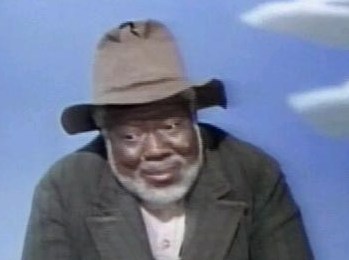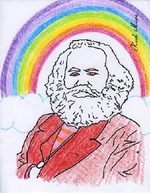 Did you know that when the Corporation for Public Broadcasting was created in 1967, a Republican congressman from Texas proposed an amendment forbidding the "educational stations" from offering "entertainment"? These were the two opposing ends of the media spectrum back in the day, entertaining or educational.
Did you know that when the Corporation for Public Broadcasting was created in 1967, a Republican congressman from Texas proposed an amendment forbidding the "educational stations" from offering "entertainment"? These were the two opposing ends of the media spectrum back in the day, entertaining or educational.
And according to a Disney executive who sat on the Child Development and Mass Media Forum [headed by Fred Rogers] at the White House Conference on Children, which was trying to come up with guidelines for "worthwhile programming" at the White House Conference on Children, the only thing that sells is "pure entertainment."
The executive, Carl Nater, was in charge of the Disney Educational Materials Company, which sold filmstrips and records to schools. He testified at the Forum and was interviewed by the Washington Post in September 1970. I will quote at some length:
[Nater] has often found the advice of professional experts to be conflicting. Furthermore, he said, such advice is an infringement on the responsibilities of the producer.Wow. Not where you thought this whole educational vs entertaining thing was going, was it?The Disney company, he said, does not try to mix entertainment and education.
"Everything we do for theaters and television is motivated by a desire to provide entertainment--period. If it just happens that there's something educational in it, like our nature shows, well, that's just a plus. The educational material we do is made directly for the education market, and we could no more take it into the theater than fly."
For example, he pointed to educational films, where "It's important to be sensitive to the bi-racial point of view." But in entertainment films, he said, "We've had colored people--we did 'Uncle Remus'--but we're not going to go around saying, 'My God, we've got to have colored people in this."
The criteria for Disney entertainment is that it "not be embarrassing, have nothing to be ashamed of and not upset people who hold some kind of standards," he said, adding that these believes came from Disney himself, "who was no prude, either, just a perfectly normal man, and these were his personal preferences."
This is the same principle of non-offensiveness by which visitors to the Disneyland Park are now approached as they wait in line and sounded out for "attitude" so that true Disney patrons will not be subjected to people who are "unkempt, dirty and not fun to sit next to on a ride," he explained.
"Selling Education on TV," by Judith Martin, The Washington Post, Sept. 22, 1970, pg. B2.
Made in 1946, yo: Is Song of the South too racist to screen? [guardian film blog]


So that's a quote from an article written by Miss Manners before she was Miss Manners? There's an irony to that somehow.
one and the same. Her Wikipedia page says she covered "social events at the White House."